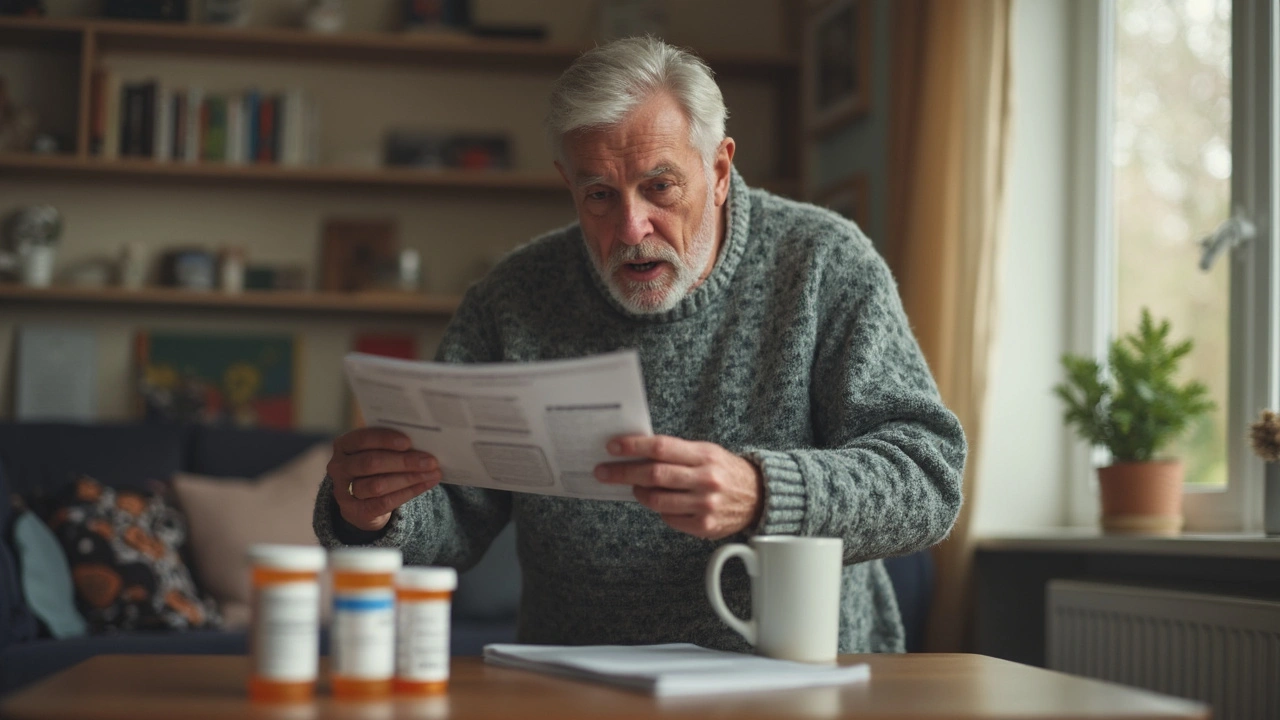Peeing more often than usual? You’re not alone, and your medication could be the culprit. This article breaks down how common drugs, like tamsulosin, mess with bladder function and what you can actually do about the side effects. We’ll dig into facts, tips, and ways to manage those endless trips to the bathroom. Get clear answers and relatable advice for understanding and dealing with medication-related urinary frequency.
Urinary frequency: Causes, when to worry, and practical fixes
Urinary frequency is when you need to pee more often than usual. It can be annoying, disrupt sleep, and make it hard to get through a meeting. Sometimes it's harmless — a strong coffee habit, extra fluid, or a night of wine. Other times it signals an infection, uncontrolled blood sugar, medication side effects, or bladder problems. This guide helps you spot common causes, simple self-care steps, and when to see a doctor.
Common causes
Urinary tract infections (UTIs) are one of the top reasons people suddenly pee more often. UTIs often bring burning, urgency, and cloudy or smelly urine. Overactive bladder is a condition where the bladder contracts too often, causing urgency and frequency without infection. Diabetes or high blood sugar leads to extra urine because the body tries to dump excess glucose. Certain medicines, especially diuretics like hydrochlorothiazide or spironolactone, increase urine output. In men, prostate enlargement can block flow and cause frequent small voids. Pregnancy, anxiety, caffeine, and alcohol also play a role.
Simple checks you can do
Keep a 24-hour bladder diary: note how much you drink, what you drink, and when you pee. Cut or pause caffeine and alcohol for a few days to see if things improve. Check blood sugar if you notice extreme thirst or unexplained weight changes. If you take a water pill or blood pressure drug, ask your prescriber whether timing the dose differently might help.
Self-care that helps: Timed voiding and bladder training work well for many people: slowly increase the time between bathroom trips by 15 minutes each week. Do pelvic floor (Kegel) exercises to improve control — contract the muscles like stopping the flow of urine, hold five seconds, repeat 10 times, three times a day. Avoid bladder irritants: caffeine, citrus, artificial sweeteners, and spicy foods. Stay hydrated but avoid gulping large amounts — small regular sips throughout the day keep urine less concentrated and less irritating.
When to see a doctor: See a doctor right away if you have fever, back pain, severe burning, blood in urine, or sudden confusion (in older adults). Also get checked if changes persist longer than a week, occur with weight loss, or you have known diabetes or prostate problems. Tests doctors commonly use include a urine dipstick or culture, blood glucose, and in some cases bladder ultrasound or post-void residual measurement.
Treatment options: If you have a UTI, antibiotics treat the infection. Overactive bladder may respond to bladder training, pelvic floor therapy, or medications such as antimuscarinics or beta-3 agonists prescribed by a clinician. If a medication causes symptoms, your doctor may change the dose or offer an alternative. Surgery is rarely needed but may be considered for significant prostate obstruction.
Want more? If you take diuretics or blood pressure meds, check our article on Hydrochlorothiazide alternatives and how drugs affect urinary habits. If you suspect a UTI or need help with bladder training, book a visit with your primary care provider or a urology specialist.
Don't ignore persistent urinary changes.

